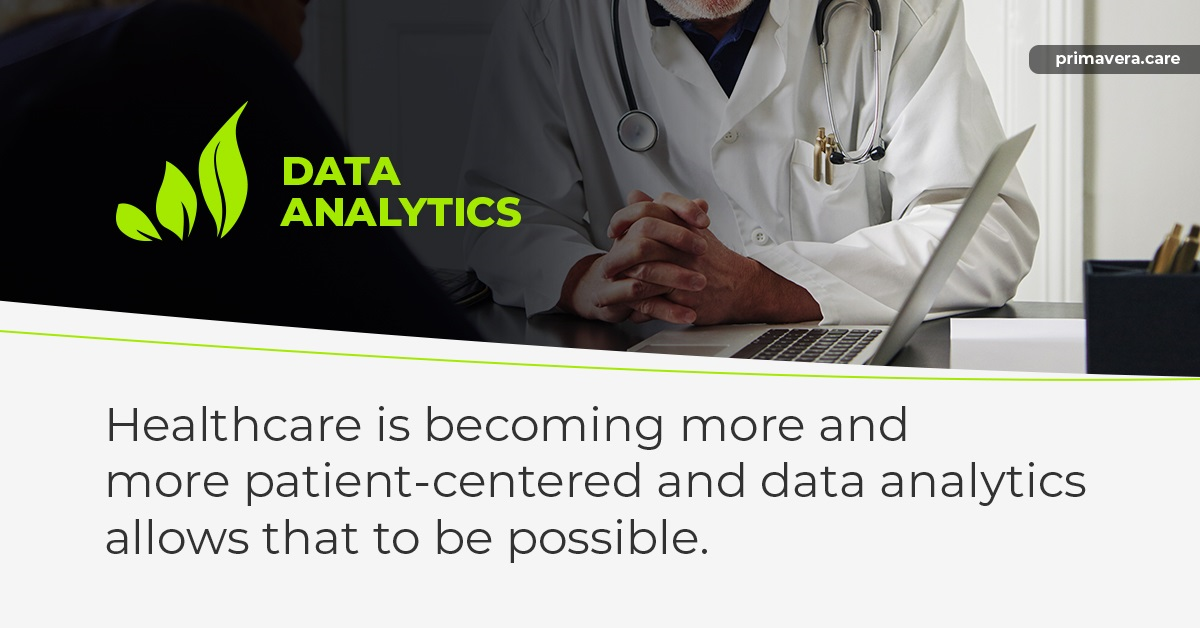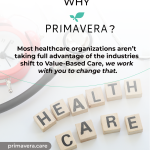As the digital information landscape becomes more and more widespread, and technologies become more integrated with innovative software, the opportunities for advancements in the way we interact with our healthcare needs become almost limitless. Today we explore the influence of data analytics on our healthcare system.
Our personal devices can now be synced with our medical devices, and all our records and data can travel instantly wherever they are needed.
This is the world of big data.
How are Data Analytics Applied to Healthcare?
Data in healthcare is going through the same process that the old Hollywood movie studios did when there was a movement from the studios managing and representing all their own actors, to the actors managing and representing themselves.
Healthcare is becoming more and more patient-centered and data analytics allows that to be possible.
Using Data Analytics in healthcare has a few facets:
- The data needs to be actionable
The business foundation of healthcare is fueled by actionable data. So, one aspect of the influence of data analytics on healthcare has to focus on cost analysis. Considering the $16 billion market that makes up data analytics in healthcare alone, it is key.
Elements like MLR, MRA, claims, capitation, and all of the other skeletal aspects keeping things running from a business perspective have to be incorporated.
- The data needs to be collected and displayed in real-time
In order for a patient-centric healthcare system to work across multiple platforms, practitioners, and practices, data collection has to be powerful, 24/7, and user-friendly.
- There needs to be a strong element of analysis
Data on patients, payors, providers, and geographical and population trends all needs to be collected but it’s useless if it can’t be read and analyzed. Analysis is two-fold; the programs processing the data have to accurately analyze and convert to readable charts, graphs, and alerts to allow for well-informed human analysis and decision making.
- The data needs to be projectable for risk management
Risk management takes analyzed data one step further by integrating patient profiles and information with data from the rest of the system to identify high utilizers, establish individual levels of risk for each patient, and develop a care strategy.
What are the Benefits of the Influence of Data Analytics on Healthcare?
Big data means complex data and has just as much to do with volume as it does with complicated data sets. We’ve broken down the monster task of what data and data analytics needs to accomplish but what are the measurable benefits?
Removing Bias and Prejudice in Data Collection
Data at its core is just a bunch of 1s and 0s. Data collection without any pre-existing notions or inherent biases about a given patient population leads to more accurate data collection. Taking that a step further and facilitating data entry privileges for the patient creates a network of the most unpolluted data we’ve seen in healthcare to date.
Access to Life Changing Data for Practitioners and Patients
The flip side to collecting data is providing it. And that can be done in the form of self-care guides to patients, accurate information on health conditions and chronic illnesses, and logistical guidance regarding nearby experts, pharmacies, transportation services, etc.
For practitioners, having instant access to all relevant medical data for a patient, the ability to instantaneously assess risk, and the tools to compare trends in local populations is invaluable.
An Open Source Future
As softwares and technologies continue to develop, and data continues to be collected and shared, the Healthcare world moves more and more into an open source format when it comes to data management and data analytics.
On the positive side, there are important benefits. Big data offers an unobstructed, comprehensive view of health trends; information like this being crucial for preventing and tracking widespread viruses, monitoring increases and decreases in illness types on a major scale, and identifying and addressing trends within certain populations
What are the Risks of the Influence of Data Analytics on Healthcare?
No system is perfect. And we’re potentially talking about a very, very big system. Streamlining the process of data collection, and bringing ease to the user when it comes to analysis and projections can be turned to a negative direction when we consider the potential ramifications on patient privacy and confidentiality.
The concern from patients about having their data reverse engineered and used against them has to be met with strong security protocols both from the patient side and the practitioner side when it comes to data protection.
For this, a next level security plan is needed that encompasses:
- HIPAA compliance
- Data encryption
- Advanced (Two Factor) Authorization
- Best internal security practices from your App or software provider
- Accountability through secure logs
- Secure data storage
The struggle between protecting patients’ privacy and treating them effectively is playing out on a digital data field – and it will take both effective data analysis and human analysis to navigate.
Data Analytics in Action
In an extensive 2014 study done by BMJ Quality & Safety, over 12 million adults receiving outpatient care are being misdiagnosed annually in the U.S. That boils down to 1 out of every 20 patients.
To put this in even more perspective, a 2018 National Health Interview Survey conducted by the CDC found that just over 84% of adults had contact with a healthcare professional that year. The potential for data analytics to cut down on misdiagnosis through an improvement in accurate reporting and analysis of large data sets is astronomical – nearly as big as big data itself.
The first step is always knowledge. Make better decisions and understand your patient population with real-time data from Primavera Data Analytics and Case Management.








Recent Comments